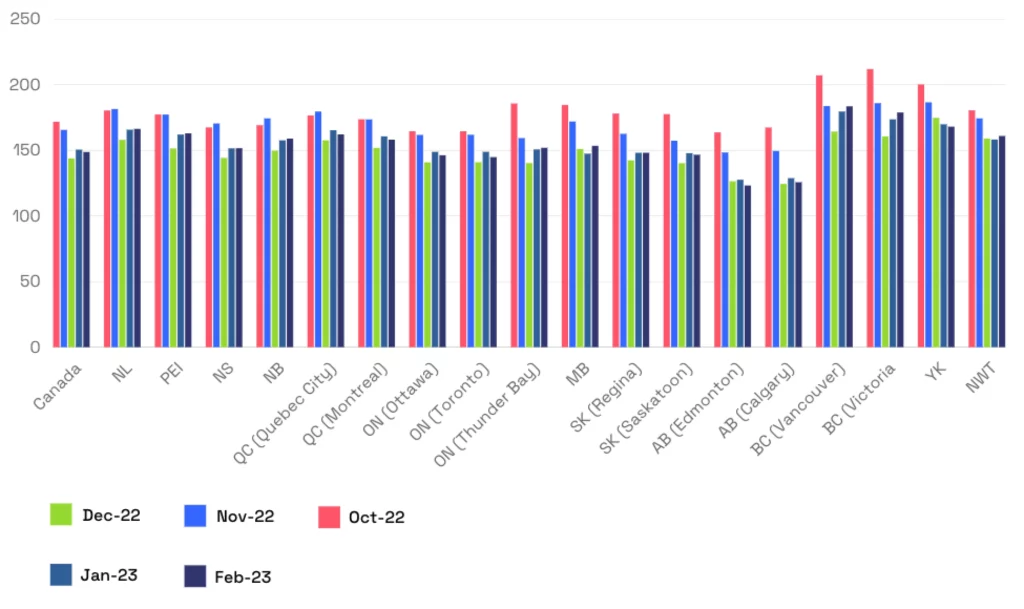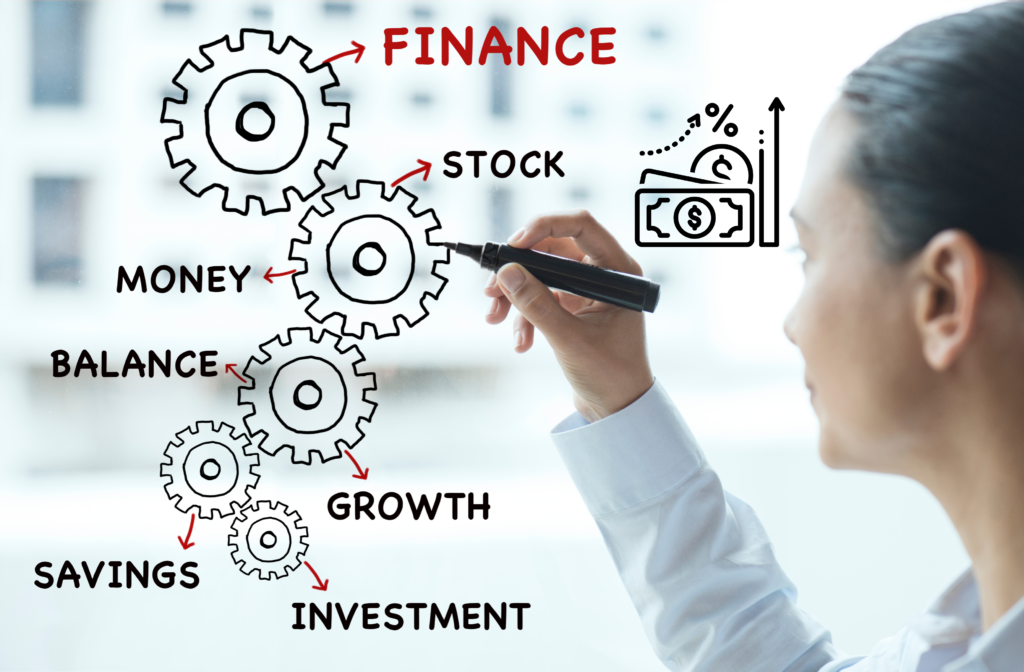Finding cheap gas in Canada has never been more important. Inflation and fuel costs have increased significantly, making people need to search for the most economical gas prices. The price of crude oil, distribution problems, and political conflict contributed to gasoline prices peaking at more than two dollars per litre in certain areas.
Frequent commuters are especially affected as gas is and has always been a necessary household expense. Inflation has also been the cause of sharp increases in the prices of groceries and other goods. These economic trends have Canadians seeking the cheapest gas prices in their area.
Despite recent slight price reductions, finding ways to manage gas prices during this time is still crucial in maintaining a stable household budget. This article examines strategies for finding cheap gas in Canada and offers other tips to help you save money at the pump.
Gas prices in Canada explained
Ontario and Quebec are the country's primary gas consumers, making up 60% of consumption. The rest is shared among the Atlantic and Western provinces, and the North.
Creditpicks
Tweet
Gasoline is essential for the proper running of vehicles which use it as fuel. It is produced from petroleum and is used globally. Refineries make this vital resource from processed crude oil, and it is a significant part of our lives as it allows for easy movement from one place to another.
Canada is among the top five oil-producing countries, creating 5% of the world's oil supply with an average of 5.27 million barrels daily. This output is derived from the Oil Sands of Alberta, the Western Canada Sedimentary Basin, and the Atlantic Offshore Fields. Ontario and Quebec are the country's primary gas consumers, making up 60% of the share, while the rest is shared among the Western provinces, the Atlantic Province, and the North.
The cost of gasoline in Canada can vary from province to province. Roughly half of the price is determined by the cost of crude oil, with taxes making up the other 30%. The remaining portion is allocated to the costs of processing, distribution, and any profits.
Gas prices in Canada are typically lower in large cities than in small towns. However, they vary depending on the type of fuel, applicable taxes, station type and location, competition, and the final daily station-set selling price.
Many factors affect the price of gas in Canada, including the following:
- Season.
- Weather.
- Refining capacity.
- Exchange rate of the United States Dollar (USD).
- Demand.
- Issues related to geopolitics (e.g., war), supply chain issues, or otherwise.
Current status of gas prices in Canada
Gasoline prices in Canada can vary widely, depending on the region. Government figures reveal that the highest average gas price was in May 2022, at 197.4 cents per litre. In some areas, gas prices surpassed $2.06 per litre. Despite the decrease in fuel costs, knowing how to get the best gasoline prices is still beneficial.
The figures in the table demonstrate the typical retail gasoline costs in different parts of the nation. It is important to remember that these figures only indicate the average prices and do not necessarily reflect the exact market prices.

How to find cheap gas in Canada
There are various ways to get the best bang for your buck on gas in Canada. The following are a few options to consider.
Use apps and gas comparison tools

Using your smartphone, you can take advantage of various apps and websites available in Canada that compare gas prices and assist you in your travels by reducing fuel costs.
To start, try downloading apps such as Waze, Gas Guru, or GasBuddy to find nearby gas stations with the lowest prices. CAA members can scan local gas prices and trends using their app or website.
These apps and websites generally update in real-time as they are connected to various data streams via Application Programming Interfaces (API).
Get retail gas membership or gas credit card
In Canada, a way to save money on gasoline is to use retail memberships and credit cards that provide reduced prices.
If you're a Costco member, you can take advantage of discounted fuel prices the next time you need a fill-up. Plus, using a Costco Mastercard will give you cash back. Just be aware that the gas station may have shorter hours and more people in line than other places. But if you usually get gas during retail hours, then it shouldn't be a problem.
It's also worth checking out gas stations that offer reward points, cash back, or other benefits. Brands such as Canadian Tire, Esso, and Petro-Canada all have customer rewards programs. You can quickly sign up for all of them.
Another option is speaking with your financial institution about credit cards offering a bonus or a permanent gas discount. For example, the RBC credit card gives 3 cents off every litre of gas purchased at Petro-Canada, and the Scotiabank credit card gives 2% cash back on every dollar spent at eligible gas stations.
Ask your friends and neighbours

If you're looking for a good deal on gas in Canada, you can ask a neighbour or friend for advice. If you don't have someone like that, you could join a local Facebook group for more tips and resources.
Active and helpful online communities are considered the best sources to find tips from deal-hunters willing to share their successes. Find a group that serves as a hub for its members and encourages engagement.
Talking about the fuel cost in Canada is an option, or you can look for conversations already in progress to gain insight. If you don't have a Facebook account, try joining a platform like NextDoor.
Manage your timing
Choosing when to buy gasoline is equally crucial as picking the right place. Therefore, it is not enough to only search for the lowest-priced gas stations. You should also purchase fuel when the prices are at their lowest.
Days of the week can affect fuel prices, with Mondays and Fridays being the most expensive. However, other days may offer lower prices. To maximize savings, it's best to fill up on Tuesday or Wednesday mornings, but Sunday and Wednesday evenings can also be competitive. Fridays should be avoided as prices soar as the weekend comes.

Find gas stations that offer a cash discount
Paying with cash at certain gas stations in Canada can be a great way to save money on fuel. The savings per litre may not appear to be a lot initially, but it can accumulate significantly for those who drive often.
Not all gas stations offer cash discounts, so it's worth researching in advance to find the ones offering it.
Tips to save money on gas in Canada
To save money on gas in Canada, you can look into various methods, such as changing your driving habits and efficiently using air conditioning. There are numerous ways to minimize the amount of gas your car consumes.
Consider your driving habits and vehicle maintenance
To make sure you're getting the most out of your fuel, there are specific actions you can take. It's not just going fast that leads to burning through a lot of gas; there are various other driving behaviours you may not be aware of. Here are a few ideas to help you optimize your fuel efficiency.
- Avoid idling for over half a minute. Unnecessary idling wastes fuel. Period. With a three-litre engine, you waste approximately 300 millilitres (over one cup) of gas every ten minutes while idling.
- Make sure the air pressure in your tires is not low. Finding the proper tire pressure is critical. High pressure will save you gas, but it will also reduce your tire lifespan. On the other hand, low tire pressure burns gas.
- Tune your engine and change your oil regularly. Always follow your vehicle manufacturer's recommendations regarding servicing and oil changes.
- Remove any heavy items that can lighten the weight of your car. For example, racks, sandbags, or anything else that can weigh down your vehicle should be removed unless needed.
Use air conditioning sparingly
Heavy A/C use can increase a car's gas consumption by up to 20%. For smaller sedans, air conditioning is typically more efficient because of less air resistance, while larger vehicles may benefit from having their windows open. Generally, using A/C while driving on highways and opening windows while in towns is recommended.
Use the correct type of gasoline
In most cases, your car does not need to be filled with premium gas, as regular fuel is sufficient. Unless your vehicle specifically requires it, there is no benefit to using a higher-grade gas, so any extra expense put into it would be unnecessary.
Try carpooling when possible
Cut your gas costs and make your trips go faster by riding with other people going the same way. Take advantage of carpool lanes for extra convenience. If you don't know anyone who can carpool with you, online services like Poparide will help you share expenses and make extra money on longer journeys.
Plan your route in advance
Efficiently organizing your errands can save you both time and money. You can avoid backtracking and reduce your fuel consumption by plotting a path ahead of time that gets you to all your destinations in the most direct way possible.
Use public transportation
Reducing gas costs can be as simple as limiting driving, though that may not be practical for long daily commutes. For shorter distances, alternate transportation methods such as walking, biking, or public transit can be a great way to save money while reducing your carbon footprint.
Summary
Canadians must be savvy regarding fuel costs, as gas prices have increased substantially. Cheap gas is an essential part of everyday life for many households, as it is necessary for transportation and a factor in the cost of groceries and other goods. Therefore, Canadians need to find the lowest possible gasoline price to save money.
Gas prices in Canada can be affected by a variety of elements. However, there are several ways to find low-cost gasoline. For example, you can use online comparison websites, download and use mobile apps, participate in loyalty cards, take advantage of discounts, or ask family and friends.
It is important to remember that you have various options for reducing your monthly gas bill. This can include changing your driving habits, carpooling, selecting the correct fuel type, and other strategies to help you manage the rising fuel costs.
Check back with us often for more how-tos and other guidance on saving money in Canada.




